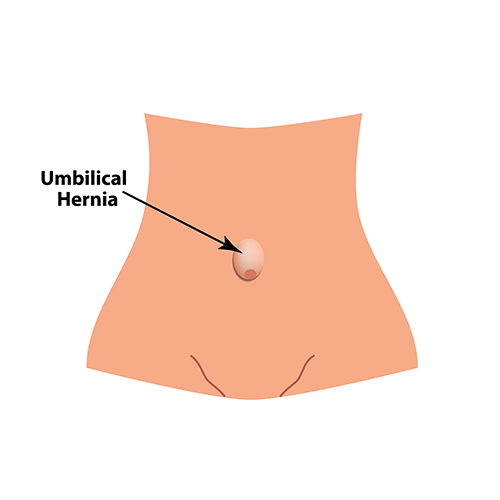- Home
- About Doctor
- For Patients
- Gall Stones
- Appendicitis Treatments
- Obesity
- Oesophagus Cancer
- Gastric Ulcers And Treatments
- Duodenal Ulcers
- Stomach Cancer
- Liver Diseases
- Gastroesophageal Reflux Disease (GERD)
- Pancreatitis diseases and tumours of the pancreas
- Perforation of the intestine
- Abdominal Trauma
- Jaundice Treatment
- Crohn’s Disease
- Ulcerative Colitis
- Colon Polyps
- Piles
- Hernia
- Fistula
- Cancers
- Thyroid Disorders
- Swelling and Abscesses anywhere in The Body
- Surgeries Offered
- Gastrointestinal Surgeries
- Laparoscopic cholecystectomy
- Laparoscopic Appendectomy
- Surgery for GERD
- Trauma Surgery
- Surgeries for Obstructive Jaundice
- Surgeries for the Pancreas
- Surgeries on the Stomach
- Bariatric Surgery
- Laparoscopic Sleeve Gastronomy
- Hernia Surgery
- Breast Surgery
- Small and Large Intestine Surgeries
- Colorectal Surgery
- Testimonials
- Blogs
- FAQs
- News And Events
- Gallery
- Contact Us
- Book an Appointment
Umbilical Hernia
Chennai Gastro Care, offers specialized umbilical herania treatment in Chennai. Dr. Deepak, hernia surgery specialist in Chennai makes it a point to see that patient returns to normal life through follow-up sessions and care.
The leading hernia surgeon in Chennai, can render his expertise to solve the problem in a limited time. Surgery will be the final resort in chronic cases of hernia. Umbilical Hernia is a case of abnormal bulging in the area of the umbilicus (belly button). It is common among the infants and affects adults too.
Umbilical hernias can be congenital or acquired. Congenital umbilical hernias are malformations of the umbilicus or navel region. A more common occurrence in women, umbilical hernia, is caused due to increased intra-abdominal pressure. Congenital umbilical hernias occur through the umbilical fibromuscular ring in children. They usually obliterate by two years of age but in the case of persistence for more than 2 – 4 years, surgical intervention may be required. Premature infants are at a higher risk of developing umbilical hernias.

Causes
- Too much intra-abdominal pressure
- Obesity
- Frequent pregnancies
- Multiple gestations such as triplets, twins etc.
- Ascites or accumulation of fluid in the abdominal cavity
- Abdominal surgery
- COPD – persistent and heavy coughing
Signs and Symptoms
Congenital umbilical hernias are noticed when there is a swelling or bulge around the navel area especially when the baby cries or strains. The swelling disappears when the baby is lying down on its back. Congenital umbilical hernias are not painful. A hernia can be serious if there is pain, and the patient experiences vomiting. The bulge becomes swollen, discoloured and is tender on palpation. Adult umbilical hernias can cause a lot of abdominal discomfitures.
Diagnosis
- Physical examination will reveal a swelling at the site along with some sensation of aching that radiates into the area of a hernia. Children display irritability if a hernia is really large. Hernias are usually accompanied by a dull pain that can worsen with exercise or any kind of strain. An incarcerated hernia is a painful enlargement. There is evident nausea, vomiting and possible bowel obstruction. In the case of a strangulated hernia, there is a toxic appearance secondary to the ischemic bowel.
- Blood tests will include CBC, blood urea nitrogen and electrolyte levels.
- Other tests such as lactate levels and urinalysis are also conducted.
- Abdominal films, chest radiographs, CT of the abdomen and pelvis and ultrasound scans are also taken.
Treatment and Medication
Hernias require surgery especially because of the risk of a strangulated bowel. These demand admission and surgical evaluation. In adults, the omentum is a frequently incarcerated organ. Broad spectrum antibiotics are prescribed for suspected bowel ischemia. Local anaesthetics such as lidocaine and epinephrine will give patient comfort during the procedure. Propophol and Thiopental are general anaesthetics that are used when required. NSAIDs are anti-inflammatory drugs and anti-anxiety drugs will reduce patient agitation before a surgery.
I am a bariatric surgeon who has effectively conducted a number of surgeries for hernias successfully.
Ask doctor
Testimonials
 Very practical approach to my dads gallbladder stone problem .. Surgery was explained well by diagrams and he performed the surgery by key holes which made it pain free for my dad . I had consulted many in the last 1 month including
Very practical approach to my dads gallbladder stone problem .. Surgery was explained well by diagrams and he performed the surgery by key holes which made it pain free for my dad . I had consulted many in the last 1 month including 
Subramanian
Read More The doctor was helpful. He worked with me to select the best option for treatment and helped finalize treatment. He ensured that my appointment went ahead as planned and followed up rigorously post op too. Scar was a bit larger
The doctor was helpful. He worked with me to select the best option for treatment and helped finalize treatment. He ensured that my appointment went ahead as planned and followed up rigorously post op too. Scar was a bit larger 
Mehul Kain
Read More The doctor was helpful. He worked with me to select the best option for treatment and helped finalize treatment. He ensured that my appointment went ahead as planned and followed up rigorously post op too. Scar was a bit larger
The doctor was helpful. He worked with me to select the best option for treatment and helped finalize treatment. He ensured that my appointment went ahead as planned and followed up rigorously post op too. Scar was a bit larger 



